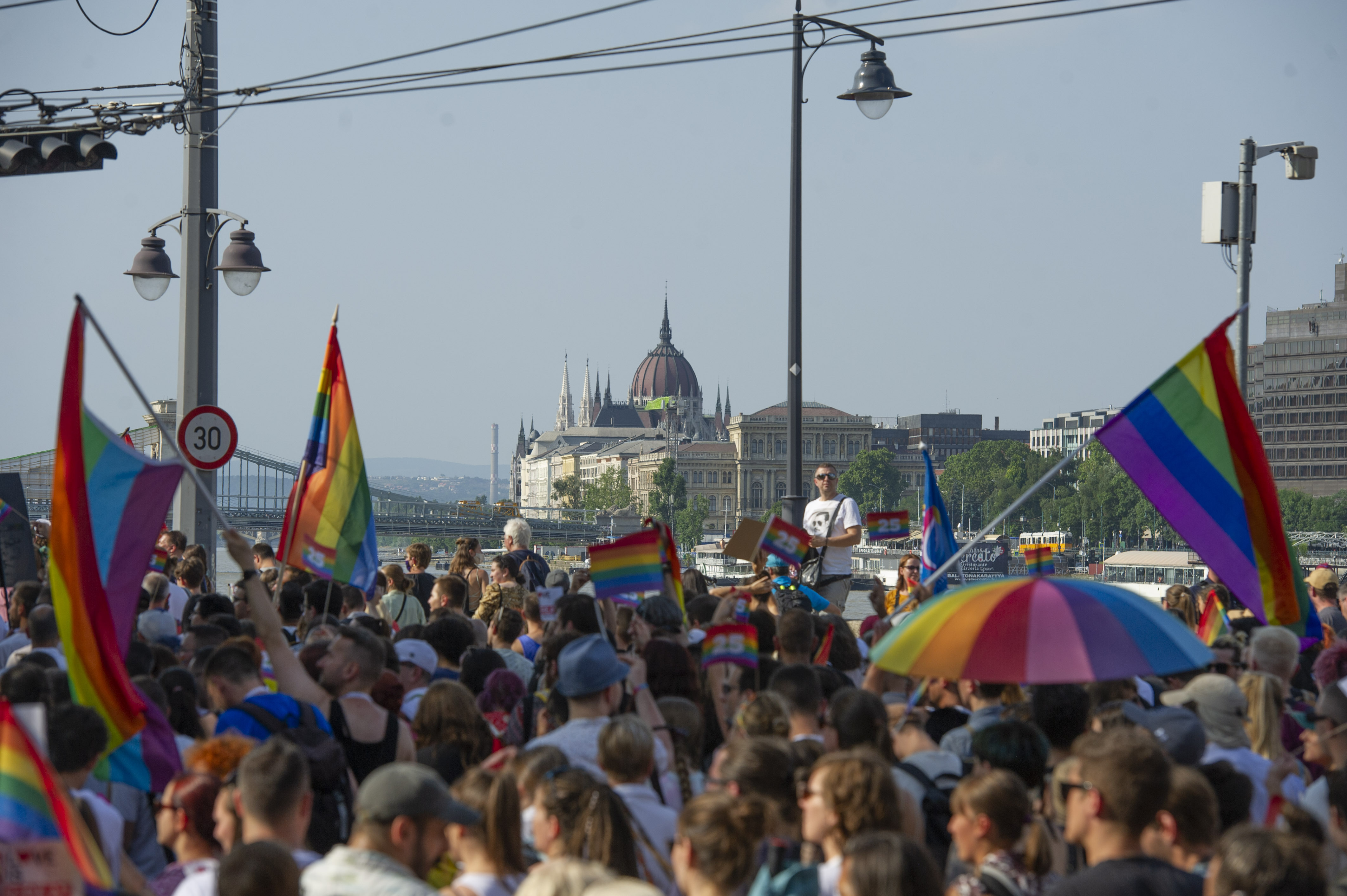Hungary
Discrimination to Stay in Power - Orbán Has Declared the LGBT+ Community an Enemy

Hungary's ruling party Fidesz has discriminated against the LGBT+ community for years. For example, teachers are not allowed to teach about homosexuality, the sale of books dealing with LGBT+ issues is restricted and speeches by Fidesz politicians contain an open discrimination against the LGBT+ community. The European Commission is therefore taking Hungary to the Court of Justice of the European Union.
The US Ambassador to Hungary, David Pressman, opened this year's Budapest Pride with the following words: "Preying on the vulnerable to stir up hatred, to rally supporters, to augment poll numbers is nothing new in this country — or in my own — but the consequences on the psyche and health of individuals, families, communities, and of nations, are real and devastating."
The Hungarian government's policies directed against the LGBT+ community are particularly burdensome for young people, who are just discovering their identity and at the same time, they have to defend themselves. In recent years, discrimination has continued to increase. In 2007, the social democratic government of the time approved registered partnerships for gays and lesbians. Although this does not allow the same rights as marriage, Hungary took one step towards legal equality for heterosexual and homosexual couples. However, this political measure belongs among the last that lead to strengthening the rights of LGBT+ persons in Hungary.
The current Hungarian government openly acts against LGBT+ people. According to a study by the Hungarian think tank Political Capital, supported by the Friedrich Naumann Foundation for Freedom, policies directed against LGBT+ people got to the political focus of the government's work since 2017. For example, the government launched an anti-LGBT+ campaign that led to the abolition of all accreditations for gender studies at universities in Hungary in 2018. In 2020, the Hungarian parliament refused to ratify the Istanbul Convention, an international treaty to combat violence against women, arguing that the convention was directed against the traditional family. In May 2020, the parliament passed a law targeting trans people, prohibiting a subsequent change of gender in identity documents. Since then, the state has replaced the "gender" column with "sex assigned at birth" in official identity documents. In the same year, the government embodied the definition of "parents" in the fundamental law as a man and a woman and excluded unmarried couples from adopting children.
Last but not least, a so-called child protection law was passed in 2021, which caused great outrage both domestically and across Europe. The law – often compared to the Russian anti-gay law from 2013 – restricts access to information about homosexuality and gender reassignment for minors. Thus, the pupils may discuss only heterosexuality in schools, films or advertising. Since the law was originally supposed to combat sexual abuse of children, the proponents of this law – the right-wing populist parties Fidesz and Jobbik – have directly linked the LGBT+ community to paedophilia.
A few weeks later, the government passed an additional decree that banned the sale of books dealing with LGBT+ issues near schools and churches. In other bookstores, those books must be at least wrapped in opaque packaging, according to the decree.
Discrimination on a Daily Agenda
The Hungarian government has successfully created a narrative of a hostile gender and LGBT+ ideology that poses a threat to traditional values and the "normal" decent Hungarian family. Among the most vocal proponents of this hostile policy are leading Fidesz members. For example, László Kövér (Fidesz), the speaker of the Hungarian parliament, recently openly compared the adoption of children by LGBT+ people to paedophilia, or Katalin Novák (Fidesz), the Hungarian president, advocated in her former role as family affairs minister the banning of same-sex marriages. In addition to these Fidesz politicians, Dóra Dúró from the far-right Mi Hazánk (Our Homeland) movement is also an example of the anti-LGBT+ camp. She has publicly torn up a children's book published by the pro-lesbian non-governmental organisation Labrisz because of an alleged dangerous propaganda, which poses a threat to children.
Non-governmental actors also run campaigns against the so-called gender and LGBT+ ideology. For example, the Hungarian research institute Center for Fundamental Rights, which has close ties to the American Republican Party, regularly organises events with the Fidesz-affiliated think tank Matthias Corvinus Collegium and with the presence of numerous Fidesz politicians and ultra-conservative thinkers from all over the world. Moreover, the Conservative Political Action Conference (CPAC), an association of conservative parties, has taken place in Budapest already for the second time – not without reason.
A Glimpse of Hope for the LGBT+ Group
Despite strong and almost omnipresent state propaganda, many pro-LGBT+ organisations are active in Hungary - both party-linked and independent.
A parliamentary group called For a Diverse Hungary devotes to Hungarian LGBT+ people and human rights in general since 2022. The group consists of MPs from all opposition parties and is led by the liberal Momentum movement (ALDE member).
Independent organisations include Budapest Pride, Labrisz, Háttér Society or Transvanilla. Also worth mentioning is the Rainbow Platform, founded by Momentum members, which recently organised a debate in Budapest on political diversity.
The European Union is also giving hope to the Hungarian LGBT+ community. It has the Hungarian government on its radar because of the so-called Child Protection Act: In June last year, the European Commission took Hungary to the Court of Justice of the European Union – 15 EU countries have joined the action.
